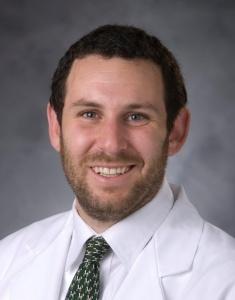
Despite the large number of children and adolescents who meet the criteria for a diagnosable mental health disorder, fewer than 20% actually receive the appropriate mental health services because of the limited number of trained clinicians, including child psychiatrists, and multiple barriers to access, particularly in rural populations.
Gary R. Maslow, MD, MPH, a triple board certified child and adolescent psychiatrist and pediatrician, is leading several Duke initiatives to address this challenge in his role as co-chief for the Division of Child and Family Mental Health and Developmental Neuroscience in the Department of Psychiatry and Behavioral Sciences.
“Our work has a few different directions under the broad heading of ‘integrated care,’” Maslow says. “The idea is that we can bring mental health expertise into primary care, family medicine practices, rural pediatric clinics, and other specialty clinics by supporting those providers in new ways.”
The largest of the integration programs is the North Carolina Psychiatry Access Line (NC-PAL), a telephone consultation program operated by Duke Integrated Pediatric Mental Health. Through this program, providers can call a hotline number and speak directly with a child psychiatrist for advice within 30 minutes of their call.
Maslow explains that calls to NC-PAL range from the straightforward to the complex, with providers asking questions such as:
- How do I dose this specific medication for a child with depression?
- I’ve tried this medication and it’s not working; what should I try next?
- I’m caring for a child whose parents say he is acting abnormally; should I screen for autism?
“We find that if primary care physicians receive direct support from child psychiatrists, they feel more comfortable providing mental health-related diagnoses, prescriptions, and referrals to specialists as time goes on,” he says.

Another program aims to improve care for patients with intellectual and developmental disabilities. In collaboration with physicians from Duke Children’s Pediatric Primary Care, Maslow and colleagues are identifying new ways of serving people with disabilities, including facilitating connections to community resources, partnering with school systems to deliver specialized services, and leveraging resources to help reduce disparities between the number of available resources and the number of people who need them.
“In one program that helps youths with intellectual disabilities build their skills, there are 12,000 slots and a 10- to 12-year waitlist for the program,” he says. “That’s a stark example of the increasing mismatch between service needs and available resources.”
Ongoing research is another important component of Duke’s model for integrated care. In one recent study, Maslow and colleagues developed an integrated pediatric evaluation center designed to curtail the need for treatment in emergency settings by increasing access to timely and appropriate care for emergent and critical mental health needs. Preliminary results demonstrated that the center contributed to improvements in timely access to psychiatric care, particularly for the most critically ill and at-risk patients.
Another branch of Maslow’s research involves improving support for adolescents with intellectual disabilities and chronic illnesses as they transition from pediatric- to adult-oriented health care—a critical time for ensuring a successful continuum of care.
Maslow serves as medical director for pediatric and adult mental health within Duke’s Population Health Management Office, bringing the integrated care model into decisions about the future of health care. “Because of the changing environment of insurance coverage, Medicaid transformation, and the movement toward value-based care, Duke is working hard to advocate for health insurance plans to cover total costs, including mental health services, and for mental health to be part of ‘doing value-based care well,’” he says. “Our integrated care model is helping us think about how we deliver mental health services everywhere that people receive their health care.”
This article originally appeared on Clinical Practice Today.